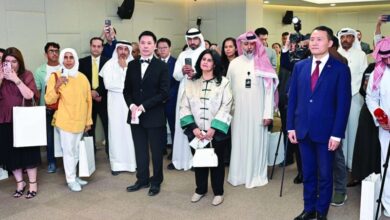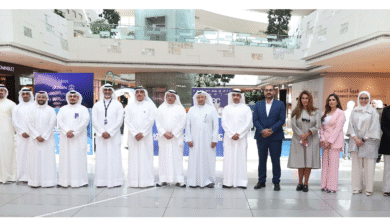Literature in digital age: Double-edged influence of social media and AI

By Mohammad Saad
Class: IX – C
Fahaheel Al-Watanieh Indian Private School (FAIPS-DPS)
In the 21st century, literature finds itself at a transformative crossroads, shaped in profound ways by the rise of social media and artificial intelligence (AI). These forces are changing not only how stories are told and poems are written but also how writers and readers connect across the globe. This essay explores the growing influence of digital technology on the literary world, weighing both the opportunities and the challenges it presents.
In the past, only a select few had access to publishers and a global audience. Today, platforms like Wattpad, Instagram, and X (formerly Twitter) have democratized literature, allowing writers from all backgrounds to share their work instantly. These platforms help writers build diverse communities and gain immediate feedback, which can be instrumental in refining their craft.
AI has also emerged as a valuable assistant in the creative process. Whether it’s generating plot ideas, enhancing character development, rephrasing awkward sentences, or helping with editing and proofreading, AI tools offer support that can reduce the time and effort involved in writing. For research, AI can swiftly analyze massive volumes of information, streamlining the creative process even further.
Recommendation algorithms, often seen as impersonal, have proven helpful in literature by introducing readers to new books and authors based on their interests. Live author Q&A sessions on Instagram, online book clubs, and literary discussions on social platforms are strengthening the bond between writers and readers, making literature more interactive and accessible.
However, the rapid pace of social media often prioritizes brief, attention-grabbing content over complex, thought-provoking narratives. As a result, literature risks being reduced to bite-sized trends that are quickly consumed and forgotten. The race to “go viral” can push authors to focus more on popularity than depth, potentially compromising literary quality.
While AI is a powerful tool, its growing presence also raises ethical and creative concerns. Who owns AI-generated content? Can machines truly replicate the emotional depth of human authors? There’s also the danger that AI could dilute authentic voices, making it harder for original storytellers to stand out.
Moreover, social media’s algorithm-driven ecosystems often create echo chambers—spaces where only familiar perspectives are amplified. This can limit exposure to diverse ideas and discourage challenging or unconventional stories. Additionally, the pressure on writers to build a public persona can shift focus away from thoughtful writing to maintaining an online image, adding stress and distraction.
The influence of social media and AI on literature is both profound and inevitable. Yet, the challenges these technologies bring are not insurmountable. The key lies in thoughtful and ethical engagement—leveraging technology to enhance storytelling while safeguarding the depth, diversity, and originality that literature requires.
As readers, students, and aspiring writers, it is vital to nurture critical thinking, support underrepresented voices, and honor the timeless power of storytelling. The future of literature should not be about replacing the human touch with algorithms but about blending innovation with imagination to create richer, more meaningful narratives. By embracing this “literally literary” revolution with awareness and care, we can ensure that the written word continues to enlighten, connect, and endure.













